第94章 Chapter (2)
Other circumstances kept the militia from coming to the summons of Marion.
Those on the borders of North Carolina were detained to meet and suppress a rising of the loyalists of that State under Hector M`Neil, and even those in his camp were unprovided with ammunition. Early in October, we find him writing pressingly to General Greene and Governor Rutledge for a supply. Rutledge answers, on the 10th of that month, "I wish to God it was in my power to send you ammunition instantly, but it is not." Col. Otho Williams, in the temporary absence of Greene, writes, in answer: "Our stock of ammunition is quite exhausted --we have not an ounce of powder, or a cartridge, in store." And yet, it was under similar deficiencies that the men of Marion had labored from the beginning; and half the time had they gone into battle with less than three rounds of powder to a man. Williams further writes:
"His Excellency, Governor Rutledge, has intimated that you meditate an expedition over the Santee. In making your determination, if it is not settled, permit me to recommend to your consideration, that THE GENERAL DEPENDS UPON YOU ENTIRELY FOR INTELLIGENCEOF THE ENEMY'S MOTIONS." The activity of our partisan, his elasticity of character, his independence of resources, and usefulness to others, are all to be gathered from these two extracts.
Late in September of this year, Governor Rutledge issued a proclamation, requiring that the disaffected should come in within thirty days, and perform a six months tour of duty. The condition of pardon for all previous offences was attached to this requisition. The idea of this proclamation was borrowed from similar ones of the British generals, when they first overran the country. The object was to secure those persons, of whom there were numbers, who, in the declining fortunes of the British, were not unwilling to turn upon and rend their old friends, no longer capable of protecting or providing for them. The measure was of doubtful policy, since it appealed to the basest feelings of humanity.
Its effects were considerable, however; numbers presented themselves in the ranks of Marion, showing finely in contrast with his ancient and half-naked veterans. "Their new white feathers,"says James, "fine coats, new saddles and bridles, and FAMISHED horses, showed that they had lately been in the British garrison." Their appearance, not to speak of their previous career, naturally inspired distrust in the minds of those whose scars and nakedness were the proofs of their virtue; and another measure, which was adopted about this time, had the further effect of impairing the value of that efficient brigade upon which Marion had been accustomed to rely. In order to promote the growth of the new regiments, it was permitted to all such persons as could hire a substitute, to claim exemption from military duty.
This was a temptation too great to be resisted by those old soldiers who had served from the first, who had left their families in wretched lodgings, in poverty and distress, and from whose immediate neighborhood the presence of the war was withdrawn. The six months men were easily bought up to fill their places. The result was very injurious to the `morale' of the brigade, and the evil effects of the measure were soon felt in the imperfect subordination, the deficient firmness, and the unprincipled character of the new recruits. It was productive also of differences between two of Marion's best officers, Horry and Mayham, which wrought evil consequences to the country.
Being commissioned on the same day as colonels of the new regiments, they quarrelled about precedency. The fruits of this difference will be seen hereafter.
As the winter set in, the army began to recruit, and the militia to embody under their several commanders. Greene was joined by Cols. Shelby and Sevier, with five hundred mountaineers, and these, with Horry and Mayham, were ordered to place themselves under Marion, to operate in the country between the Santee and Charleston. Sumter, at the same time, with a brigade of State troops and some companies of militia, was ordered to take post at Orangeburg, to cover the country from the inroads of the loyalists from Charleston. Pickens, in the meantime, with his regiments, traversed the border country, keeping in awe the Indians, and suppressing the predatory movements of the Tories.
About the 1st November, the separate commands of Marion and Sumter crossed the rivers, and advanced in the direction of the enemy.
The latter soon fell in with Cunningham's loyalists in force, and found it prudent to fall back. But he kept Cunningham in check with a body of men fully equal to his own. Marion, also, was compelled to come to a halt, by encountering General Stewart, posted at Wantoot, with nearly two thousand men. Stewart was at this time following up the peculiar labors which had been undertaken by Major Doyle when in temporary charge of the army.
He was collecting slaves and laying in provisions, preparing for siege in, and subsequent flight from, Charleston. The fall of Cornwallis, at Yorktown, was known in the American camp on the 9th of November. It had been anticipated in the British some time before. With the fate of that commander, virtually terminated the British hope of re-conquering the country, and the proceedings of their officers in the south, as elsewhere, looked forward to the approaching necessity of flight. It was only becoming that they should spoil the Egyptians previous to their departure.
The capture of Cornwallis produced a jubilee in the American camp.
In that of Marion the ladies of Santee were permitted to partake.